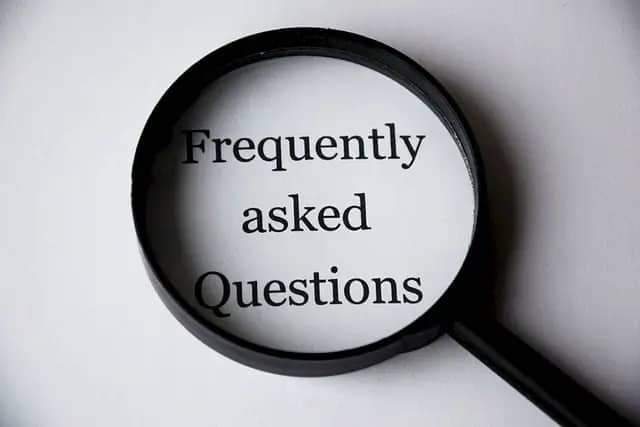
Some of the links in this post are affiliate links, which means I may earn a small commission at no extra cost to you if you make a purchase. Your support helps keep this blog running, and I only recommend products I believe in. Thanks for being a part of this community! Here's how it works.
Are you planning to start a blog but unsure which platform to use? Choosing the right blogging platform is essential for the success of your blog. In this guide, we will explore the most popular blogging platforms available and help you choose the best one for your needs.
If you are thinking about starting a blog and don’t know where to start please read this blog post.
What is a Blogging Platform?
A blogging platform is a software or service that allows you to create and publish content on the internet. Some of the most popular blogging platforms include WordPress, Blogger, Squarespace, Wix, and Medium.

Factors to Consider When Choosing a Blogging Platform
When choosing a platform, consider the following factors:
Ease of Use:
Look for platforms that are user-friendly, offer drag-and-drop editors, customizable templates, and intuitive interfaces.
Customization:
Choose a platform that offers extensive customization options, including customizable templates, font styles, color schemes, and plugins.
Pricing:
Determine your budget and select a platform that fits your needs and budget.
SEO:
Look for platforms that offer SEO tools such as meta descriptions, tags, and keywords to improve your blog’s visibility in search engine results.
Scalability:
Choose a platform that can grow with you and accommodate your future needs, such as e-commerce capabilities and additional features.

Popular Blogging Platforms to Consider
Here are some of the most popular blogging platforms to consider:
- WordPress.org: This open-source software is highly customizable and offers a wide range of themes, plugins, and features. It’s a great option for bloggers who want full control over their blog’s design and functionality.
- Blogger: Owned by Google, this platform is easy to use and offers simple customization options. It’s a good choice for beginners who want a simple, straightforward platform.
- Squarespace: This all-in-one platform offers sleek templates and intuitive design tools, making it a great option for bloggers who want a more polished and professional look. It’s also a good option for those who want to create an online store or portfolio.
- Wix: This drag-and-drop website builder is easy to use and offers a wide range of customization options. It’s a good choice for bloggers who want a lot of design flexibility without having to learn web design languages.
- Medium: This platform is focused on content and provides an easy way to publish and share your writing with a wider audience. It’s a good option for writers who want to focus on their content without having to worry about design or technical details.

Pros and Cons of Each Blogging Platform
Here are some pros and cons of each platform to consider:
WordPress.org:
Pros: Highly customizable, offers a wide range of themes and plugins, and allows for full control over your blog’s design and functionality.
Cons: Requires more technical know-how, may require more time to set up, and can be more expensive if you opt for premium themes or plugins.
Blogger:
Pros: Easy to use, offers simple customization options, and is completely free.
Cons: Doesn’t offer as many advanced features as some of the other options, can be less customizable, and may look less professional than some other options.
Squarespace:
Pros: Offers sleek templates and intuitive design tools, provides an all-in-one solution for building a website, and is great for creating an online store or portfolio.
Cons: Can be more expensive than other options, may require more time to set up, and may be less flexible in terms of customization.
Wix:
Pros: Easy to use, offers a wide range of customization options, and doesn’t require any coding knowledge.
Cons: May not be the best option for bloggers who want more advanced features or a highly customizable design.
If you’re not comfortable with coding or web design, you may want to choose a platform that offers a user-friendly interface and drag-and-drop editors.
Customization:
Consider how much customization you need for your blog. If you want complete control over your design and functionality, you may want to choose a platform that offers extensive customization options, such as WordPress.org.
On the other hand, if you’re happy with pre-designed templates and simple customization options, a platform like Blogger or Medium may be sufficient.
SEO:
Search engine optimization (SEO) is crucial for driving traffic to your blog. Look for platforms that offer built-in SEO tools, such as meta descriptions, tags, and keywords.
Platforms like WordPress.org and Squarespace are known for their strong SEO capabilities.
Scalability:
Consider your future blogging needs and whether the platform can accommodate them.
If you plan to add an e-commerce store or additional features to your blog, you may want to choose a platform that offers scalability, such as WordPress.org or Squarespace.

FAQs About Blogging Platforms:
What is the difference between WordPress.org and WordPress.com?
WordPress.org and WordPress.com are two different platforms with different features and purposes.
WordPress.org is a self-hosted content management system (CMS) that provides you with complete control over your website.
You have to download and install WordPress on your web hosting server, and you can customize it however you want.
You have access to thousands of themes and plugins to extend the functionality of your site.
This option requires some technical knowledge and may require additional expenses for hosting and domain registration.
On the other hand, WordPress.com is a hosting service that provides a platform for creating and managing a blog or website.
It’s a managed solution where WordPress handles the technical aspects of hosting, security, and software updates.
You don’t need to worry about hosting or domain registration, and you can start a website in minutes.
However, the customization options are limited, and you have to pay for premium plans to access additional features like custom domains, design customization, and monetization options.
In summary, WordPress.org is better suited for those who want complete control and flexibility over their website, while WordPress.com is ideal for beginners who want an easy and hassle-free way to start a blog or website.
Which platform is best for blogging?
There are many different blogging platforms available, each with its own pros and cons. Some popular options include WordPress, Blogger, Wix, Squarespace, and Medium.
Ultimately, the best platform for you will depend on your specific needs and preferences, such as your level of technical expertise, the features you require, and your budget.
What is the best blogging platform for a beginner blogger?
If you’re just getting started with blogging and don’t have much technical experience, you may want to consider a platform that’s user-friendly and easy to set up.
WordPress.com, Blogger, and Wix are all good options for beginners, as they offer simple interfaces and intuitive tools for creating and customizing your blog.
What are 5 blogging platforms?
Some popular blogging platforms include:
- WordPress.org: This is one of the most popular blogging platforms available, with a powerful set of tools for creating and customizing your site.
- Blogger: This platform is owned by Google and offers a simple and easy-to-use interface for creating and publishing blog posts.
- Medium: This platform is designed for writers and offers a clean, minimalist interface for publishing articles and essays.
- Wix: This platform offers a drag-and-drop interface for building websites and blogs, making it easy to create a professional-looking site without any coding knowledge.
- Squarespace: This platform is known for its beautiful templates and user-friendly interface, making it a great choice for bloggers who want a polished and professional look.
Which blogging platform is best for SEO?
When it comes to SEO (search engine optimization), WordPress is often considered the best platform for bloggers.
This is because WordPress offers a wide range of SEO plugins and tools, as well as customizable permalinks, which can help you optimize your content for search engines.
Additionally, WordPress is highly customizable, which means you can make technical SEO optimizations to your site if needed.
However, other platforms like Squarespace and Wix also offer some SEO tools and features, so it’s worth doing some research to find the platform that best meets your SEO needs.
Conclusion
Choosing the right blogging platform can make a significant difference in the success of your blog. Consider factors such as ease of use, customization, pricing, SEO capabilities, and scalability when making your decision. Take advantage of free trials or demos to test out different platforms before committing. With the right platform, you can create a beautiful and successful blog that reflects your unique style and goals.
